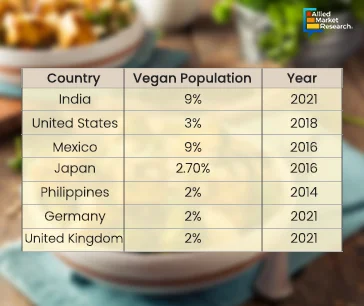Table Of Contents

Roshan Deshmukh

Anuya Rupesh Waghmare
Meat Alternatives: The Rise of Plant-Powered Innovation

Meat alternatives offer numerous benefits, including reduced environmental impact through lower greenhouse gas emissions, and land, and water usage compared to traditional livestock farming. Meat alternatives promote animal welfare by eliminating the need for animal slaughter. Additionally, they provide diverse protein sources for individuals with dietary restrictions or those seeking healthier options, contributing to a more sustainable and compassionate food system.
Advancements in Plant-Based Protein Engineering
One of the key elements of meat alternatives is creating plant-based proteins that closely resemble the taste, texture, and nutritional makeup of traditional meat. Food scientists leverage biotechnology to extract and modify proteins from sources such as soybeans, peas, and fungi. These proteins are then structured and processed using innovative techniques such as extrusion, texturization, high-pressure processing (HPP), and fermentation to create products that offer a satisfying meat-like experience.
Meat Alternatives: Disrupting Perceptions of Beef
Meat alternatives are reshaping perceptions of beef consumption by offering compelling alternatives that align with evolving consumer values and preferences regarding health, sustainability, ethics, and culinary diversity. Recent examples such as the Beyond Burger and Impossible Burger have witnessed exponential growth, with global sales of plant-based meat substitutes surpassing $1 billion in 2020, according to data from Euromonitor International. Beyond Burger and Impossible Burger are two popular plant-based burger alternatives designed to mimic the taste, texture, and appearance of traditional beef burgers, but without using any animal products. "Beyond Burgers" signifies a pivotal moment in the evolution of meat alternatives, reflecting the industry's journey beyond traditional meat-centric diets. These products not only mimic the taste and texture of traditional beef but also have environmental benefits, requiring significantly fewer resources and emitting fewer greenhouse gases during production than their animal-derived counterparts.

Moreover, consumer preferences are shifting towards meat alternatives, driven by concerns about animal welfare, health, and environmental sustainability. Studies show that over 60% of consumers are reducing their meat intake or considering doing so, as reported by the Good Food Institute. With the growing availability and innovation in meat alternatives, they have the potential to revolutionize the way humans think about beef, paving the way for a more sustainable and compassionate food future.
Exploring the Factors that Shape the Market:
Technology is making plant-based alternatives tastier and more attractive to consumers. Plant-based protein innovation is key, with companies such as Beyond Meat using pea protein to mimic meat texture. Fat structuring comes into play too, with some coconut oil for a marbled effect. Flavoring techniques are crucial as well, with companies employing natural flavors and extracts to create a convincing meaty taste. Finally, 3D printing holds promise for the future, allowing for even more realistic textures. These advancements are making plant-based options a serious contender in the meat market.
Veganism has emerged as a significant trend in the food industry, driven by growing concerns about health, animal welfare, and environmental sustainability. With an estimated 14% increase in the number of vegans in the U.S. from 2019 to 2020, according to a report by Gallup, veganism is gaining mainstream acceptance. This trend is reflected in the rising demand for plant-based alternatives to animal products, including meat, dairy, and eggs. As consumers become more conscious of the ethical and environmental impact of their food choices, veganism is expected to continue its upward trajectory, influencing product innovation and market dynamics across various sectors of the food industry.

Adoption of Meat alternatives
The consumption of meat alternatives has grown considerably in recent years, indicating a significant shift in consumer preferences towards more sustainable and ethical food choices. Various factors, including concerns over environmental sustainability, animal welfare, and personal health drive this change. As people become more aware of the environmental impact of traditional meat production, they are searching for alternatives that have a lower carbon footprint and reduce the demand for natural resources. Furthermore, the ethical concerns surrounding animal agriculture have prompted many individuals to explore plant-based protein options as a more humane alternative.
Additionally, the growing availability and improvement in taste and texture of meat alternatives have made them more attractive and accessible to a wider audience. As a result, meat alternatives are no longer limited to niche markets and have gained mainstream acceptance. An increasing number of consumers are incorporating them into their diets as a conscious effort to reduce their meat consumption and embrace more sustainable eating habits.
A Promising Future
The future of meat alternatives is exceptionally promising, backed by compelling statistics and trends that underscore their growing importance in the global food industry. Consumer demand for meat alternatives has been steadily increasing over the years. According to The Good Food Institute, the global retail sales of plant-based meat products reached $6.1 billion in 2022, which is a significant increase from previous years. Additionally, a global survey conducted by Rakuten in 2021 found that 81% of consumers had tried plant-based milk, 48% sampled other dairy alternatives, 44% experimented with vegan meat alternatives, and 25% tried a vegan egg replacement.

There is a growing trend among consumers to look for sustainable and cruelty-free alternatives to traditional meat production. This is largely due to the increasing awareness of the environmental and ethical implications of traditional meat production. In 2021, Google searches for "vegan food near me" increased by more than 5000%, indicating a significant surge in interest and adoption of plant-based options. Moreover, industry experts and practitioners are optimistic about the future of meat alternatives. According to a 2021 global survey by NSF, 88% of food industry practitioners expect demand for plant-based products to rise. Among them, 74% attributed the increased demand to consumer preference for a healthier lifestyle, while 60% believed it to be more environmentally friendly.
Challenges ahead
The meat alternatives industry faces several challenges as it seeks to establish itself as a mainstream food choice. One significant hurdle is the taste and texture replication of traditional meat, crucial for consumer acceptance. According to a study by Frontiers in Sustainable Food Systems, nearly 40% of consumers find plant-based alternatives less flavorful than conventional meat. Additionally, scalability and production efficiency remain challenges. Despite increasing demand, high production costs hinder market expansion. For example, while plant-based meat sales surged in 2020, only 5% of Americans identify as vegetarians. Overcoming these challenges requires continued investment in research and development to improve taste, texture, and affordability, alongside effective marketing strategies to educate and persuade consumers about the benefits of meat alternatives.

Worldwide growth of veganism
- The Veganuary campaign, where individuals commit to a vegan diet for January, reached a historic peak in 2022, as over 700,000 people worldwide signed up. In contrast, participation figures stood at 692,000 in 2021, 582,000 in 2020, and progressively lower numbers in preceding years.
- Germany emerged as the top source of Google searches related to veganism in 2023, followed by Austria and the UK.
- In a 2021 NSF global survey, 88% of food industry practitioners anticipated a rise in demand for plant-based products. Of these, 74% attributed consumer preference for plant-based options to a desire for a healthier lifestyle, while 60% cited environmental concerns.
- In 2021, Google searches for "vegan food near me" skyrocketed by over 5000%.
- Vegconomist's 2020 projections indicated that the vegan "leather" market is poised to reach nearly $90 billion (U.S.) by 2025.
Future Trends to Revolutionize Meat Alternatives
- Personalization: Advancements in biotechnology and food science may enable personalized meat alternatives tailored to individual tastes, dietary preferences, and nutritional needs.
- Nutritional Enhancement: Future meat alternatives may be fortified with vitamins, minerals, and other nutrients to match or surpass the nutritional profile of traditional meat, appealing to health-conscious consumers.
- Novel Ingredients: Innovations in ingredient sourcing and processing can introduce new plant-based proteins and flavors, expanding the variety and appeal of meat alternatives.
- Sustainable Sourcing: With growing awareness of environmental sustainability, there may be increased emphasis on sourcing ingredients from regenerative agriculture and alternative protein sources like algae and fungi.
- Technological Integration: Integration of artificial intelligence and machine learning in food production processes may optimize formulation, texture, and taste of meat alternatives, leading to more authentic and appealing products.
- Cellular Agriculture Advancements: Continued advancements in cellular agriculture may lead to cost reductions and scalability of lab-grown meat, making it more accessible and competitive with conventional meat.
- Cultured Meat Innovations: Research into 3D bioprinting and scaffolding techniques could enable the creation of complex meat structures, enhancing the texture and sensory experience of cultured meat products.
- Market Expansion: Meat alternatives are expected to penetrate new markets and distribution channels, including convenience stores, schools, and healthcare facilities, as consumer demand continues to grow.
- Regulatory Frameworks: Regulatory agencies may develop clearer guidelines and standards for labeling, safety, and marketing of meat alternatives, providing consumers with more transparency and confidence in these products.
- Culinary Innovation: Collaboration between chefs, food scientists, and culinary experts may lead to the creation of innovative meat alternative dishes and recipes that cater to diverse cultural preferences and culinary traditions.
For further insights, get in touch with AMR analysts.

